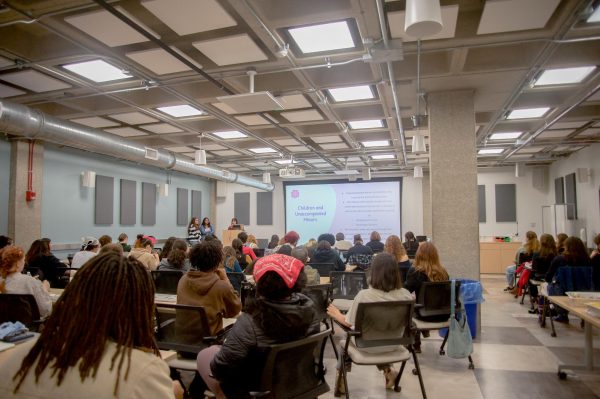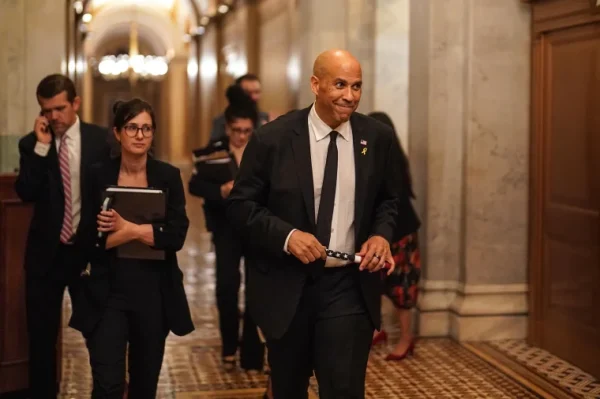“Uncensored” Unofficial Oberlin Facebook Group Incites Bullying, Censorship
On Sept. 21, 2018, The Oberlin Review published a piece called “Alumni Claim Censorship on Facebook.” The article discussed the formation of an alternative Facebook group, the Uncensored Unofficial Oberlin Alumni Discussion Group, created by Oberlin alumnus Robert Hayes, and others, after several alumni had been censored and banned from the Alumni Association’s digital community group. Hayes was quoted as saying, “It is my hope that the unofficial group we are building, where governance is transparent and open discussions are encouraged, will become a place for … necessary conversations.” Unfortunately, as we have discovered, the unofficial group has become a site for online bullying, defamation, and censorship.
After joining the Oberlin Committee for Justice for Mahallati’s Victims, the three of us — all Jewish — began posting articles about Professor of Religion and Nancy Schrom Dye Chair in Middle East and North African Studies Mohammad Jafar Mahallati. We posted Amnesty International’s report that identifies him as covering up crimes against humanity. We posted accounts from the family members of those killed in the 1988 prison massacres, and we brought attention to the protest against Mahallati’s crimes that was approaching on Nov. 2. We were met with great hostility, including an accusation that we were agents of the American Israel Public Affairs Committee only concerned about Mahallati’s anti-Israel statements and using the families’ human rights campaign for our own purposes and an accusation that we were lying about the families’ involvement in the protest. On another occasion, a hostile alumnus referenced “allegations and unsupported statements of Melissa Simone Landa and the groups/individuals she invokes” and then proceeded to state that he could find no support for those allegations.
Two weeks later, on Nov. 2, Landa spoke as an alumni representative at the protest against Mahallati, which was organized by the Oberlin Committee for Justice for Mahallati’s Victims. Hours later, Rica Mendes, the administrator of the Facebook group, muted Landa, rendering her unable to post or comment in the group.
Referring to the group rule about transparency, Frieda Fuchs asked Mendes for an explanation for Landa’s removal and was soon joined by several others, prompting several members of the group to make insulting comments about their demands. In one instance, alumnum Lily Manshel commented, “Lmao, why are there 5 different posts complaining about one annoying person being muted,” to which Mendes replied, “nailed it.”
Several days later, Mendes finally responded to Fuchs and others by presenting a litany of accusations against Landa and a notice that Landa was now permanently banned from the group. The accusations were presented without evidence and dated back several years, curiously emerging now, as Landa had become a spokesperson for the Iranian families.
Fuchs was later notified by Mendes that she was banned as well, with the ruling that she had “harassed” the moderators with her repeated demands.
Tanenbaum, who had been censored as well and was limited to one comment per hour, pointed out that Mendes has a personal history with Landa and was not able to objectively moderate. In response, an individual with the screen name Luty Hayes launched into a tirade against Tanenbaum and “every single member of Melissa’s coterie,” writing, “None of you have contributed anything of notable value. Nothing. … Not all of you have lied or misrepresented or broken rules; some of you are just torpedoes for the people who do.” Shortly after Tanenbaum’s comment was posted, Mendes muted her entirely.
The Uncensored Unofficial Oberlin Alumni Discussion Group has silenced the voices of the three Oberlin Committee members working for Mahallati’s dismissal, in effect aligning themselves with the efforts of the Oberlin administration to protect him. The group has also shown that its claims of unbiased moderation, transparency, and open discussion are empty ones. Moderation is arbitrary and vindictive, rules are optional, and hostility abounds.
We three were active members of this “uncensored” group — members who followed the rules and relied on group participation to voice our concerns about the deteriorating values of Oberlin College. In the past, we had written about the antisemitism of Professor Joy Karega and the administration’s refusal to take action against it and the discrimination against Jewish students who support Israel. This time, we were posting articles about the war crimes, antisemitism, and anti-Baha’i proclamations of Professor Mahallati.
The official Oberlin alumni Facebook group had already banned our posts and articles for being “critical of the College.” Now this alternative, “unofficial” alumni group with 2,500 members permitted the “moderators” to silence comments by banning the three of us. If people think alumni should weigh in on Jewish life on campus, how does this extreme degree of conformity allow any free speech among alumni regarding Israel, the rights of Zionist Jewish students, or faculty bias? Why was it so threatening to the official and unofficial alumni pages to post alumni-authored articles about campus antisemitism?
It’s time for the “uncensored” discussion group to reevaluate its mission and its administration and welcome us back. If it does not, its members need to decide whether to remain associated with a group that treats some of its members with such animosity and disdain. They also need to weigh the value of an Oberlin group that does not welcome discussion of an Oberlin faculty member who has been identified by Amnesty International as covering up crimes against humanity and found, by The Oberlin Review, to have “irrefutable” evidence against him. The group’s members who have watched our mistreatment in silence need to consider the words of Booker T. Washington: “A lie doesn’t become truth, wrong doesn’t become right, and evil doesn’t become good, just because it’s accepted by a majority.”



